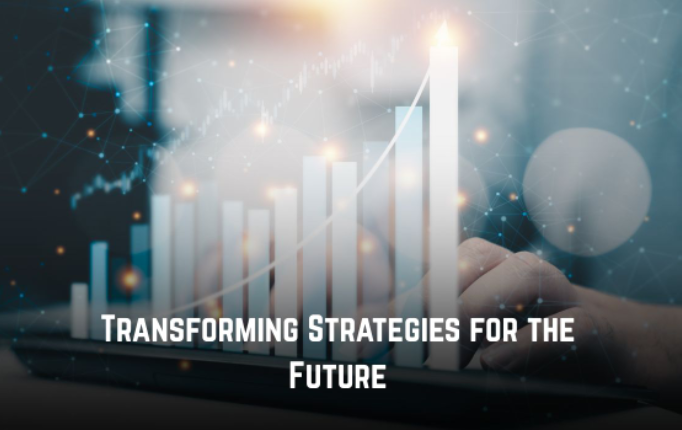In recent years, the finance sector has undergone a significant transformation, largely driven by technological advancements. One of the most impactful technologies reshaping this field is Generative AI. Generative AI, a subset of artificial intelligence that involves creating new content from existing data, is proving to be a catalyst for innovation. It has the potential to redefine traditional financial operations, offering tools that can generate new insights, automate complex processes, and even predict market trends with unprecedented accuracy.
Generative AI in finance refers to the application of these AI technologies to enhance financial services. This can include everything from algorithmic trading to risk management and personalized customer experiences. Financial institutions are leveraging generative AI to analyze vast amounts of data quickly and efficiently. This capability is not only enhancing decision-making processes but also enabling companies to remain competitive in a rapidly evolving environment. By synthesizing large datasets, generative AI provides financial professionals with actionable insights that are essential for strategic planning.
Moreover, the adoption of generative AI in finance is creating new business models and opportunities. Financial entities can now offer more customized products and services to their clients, utilizing AI to tailor financial advice and investment strategies. This customization is driven by AI’s ability to learn and adapt to individual client needs and preferences, thereby enhancing customer satisfaction and loyalty. As such, understanding and integrating generative AI into financial strategies is no longer optional but a necessity for those aiming to lead in the industry.
Challenges and Considerations in Adopting Generative AI
While the benefits of generative AI in finance are significant, the path to its full integration is fraught with challenges. One of the primary concerns is data privacy and security. Financial institutions deal with sensitive customer data, and the use of AI technologies raises questions about how this data is stored, accessed, and protected. Ensuring robust security measures and compliance with regulations such as GDPR (General Data Protection Regulation) is critical to maintaining customer trust and avoiding legal repercussions.
Another challenge is the potential for bias in AI algorithms. Generative AI systems learn from existing data, and if this data is biased, the AI’s outputs can also be biased. This is particularly concerning in finance, where biased algorithms could lead to unfair lending practices or inaccurate credit scoring. Financial institutions must therefore implement strategies to identify and mitigate bias in their AI systems. This involves not only refining algorithms but also continuously monitoring outcomes to ensure fairness and accuracy in financial decision-making processes.
The integration of generative AI into existing systems also presents technical and operational challenges. Many financial institutions rely on legacy systems that may not be compatible with advanced AI technologies. Transitioning from these systems requires significant investment in infrastructure and personnel training. Additionally, there is a need for financial professionals to develop new skill sets to work effectively alongside AI. This includes understanding AI’s capabilities and limitations, as well as learning how to interpret AI-generated insights. Addressing these challenges is crucial for organizations to harness the full potential of generative AI in finance.
Case Studies: Successful Use of Generative AI in Finance
Several financial institutions and fintech companies are already demonstrating the successful application of generative AI in finance. One notable example is JPMorgan Chase, which has implemented AI technology to optimize its trading strategies. By analyzing vast datasets in real-time, their AI systems can predict market movements more accurately than traditional methods. This has not only improved their trading outcomes but also reduced risks associated with volatile markets.
Robo-advisors, such as those provided by Betterment and Wealthfront, are also prime examples of generative AI in finance. These platforms use AI to provide personalized investment advice based on individual client data. By continuously learning from user interactions and market conditions, these robo-advisors can offer tailored recommendations that optimize investment portfolios. The result is a more accessible and efficient way for clients to manage their wealth, showcasing the transformative impact of AI in financial planning.
Embracing Generative AI for Financial Innovation
As financial institutions continue to explore the possibilities of generative AI, it becomes increasingly clear that this technology is a powerful tool for innovation. The ability to process and analyze large volumes of data quickly and accurately opens up new avenues for growth and efficiency within the finance sector. By addressing the challenges associated with AI adoption—such as data privacy, bias, and system integration—financial organizations can fully leverage the benefits of generative AI.
The future of finance is one where AI-driven strategies are not just advantageous but essential. As markets become more complex and customer expectations evolve, the adaptability and precision offered by generative AI will be crucial. Financial leaders who embrace these technologies will not only enhance their operational capabilities but also set new standards for customer service and engagement.
For those in the finance industry looking to stay ahead of the curve, now is the time to invest in generative AI. By integrating these technologies, organizations can ensure they remain competitive and continue to deliver exceptional value to their clients. Embracing generative AI is not just about keeping pace with technological advancements; it is about shaping the future of finance.
Financial professionals and institutions are encouraged to explore the potential of generative AI in transforming their operations. By attending industry conferences, participating in AI-focused workshops, and collaborating with tech partners, they can gain the knowledge and tools necessary to implement AI effectively. Stay informed, stay ahead, and be a part of the financial revolution driven by generative AI.



































